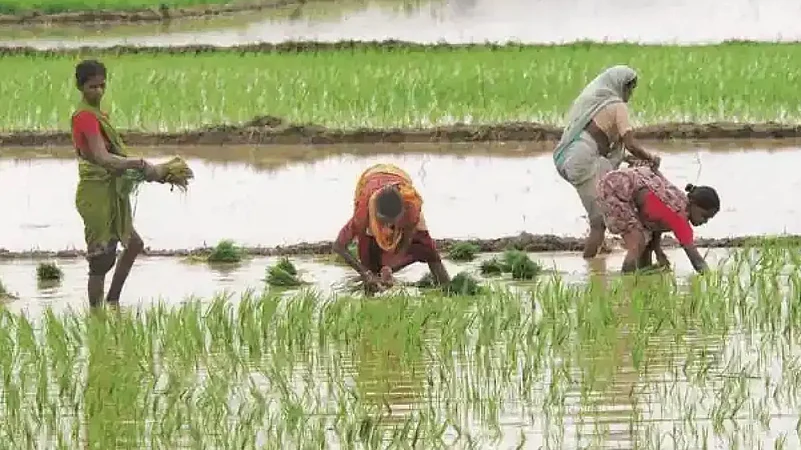Most of Haryana and Punjab, the grain bowl of India, received surplus rains between June 1 and July 22 as monsoon activity in the two states picked up pace in the last few weeks.
The monsoon accounts for around 70 per cent of the country's annual rainfall and irrigates 60 per cent of its net sown area. Nearly half of India's population depends on agriculture directly or indirectly.
According to the Meteorological Department, most of the districts in the two states have received above-normal rains between June 1, when the monsoon season starts, and July 22.
"During this period, Punjab received 208.6 mm of rain which is 24 per cent more than the normal of 168.3 mm. Haryana received 17 per cent excess rainfall of 188.7 mm against a normal of 161.3 mm," a MeT department official told reporters.
He said 16 districts in Haryana and 17 in Punjab received above-normal rains between June 1 and July 22. Six districts in each of the two states logged deficient rainfall during this period.
Chandigarh, the common capital of the two states, received 487.1 mm of rains in this period as against a normal of 344 mm, a surplus of 42 per cent.
Prof M L Khichar, the head of the Agricultural Meteorology department at Haryana Agricultural University, Hisar, said, "We are expecting good rainfall in most parts of Haryana towards July-end."
"The current spell of monsoon rains will be beneficial for Kharif crops including paddy, cotton and bajra," he said, adding it will also bring down the demand for fuel and power in the agriculture sector.
Giving details of the rainfall distribution in Haryana, the MeT department official said, Kaithal received 290.8 mm shower which is a staggering 104 per cent above normal while Fatehabad received 207.5 mm of rain which was 99 per cent surplus.
However, the rainfall was 24 per cent and 39 per cent deficient in Yamunanagar and Gurugram respectively.
In Punjab, Ferozepur gauged 238.9 mm of rain which is 139 per cent above the normal of 100.6 mm while Faridkot received 94 per cent above-normal shower.
Moga, however, was among the districts to receive deficient rains. It received 56.5 mm as against a normal 109.3 mm, leaving a deficit of 48 per cent.
(With PTI Inputs)


























